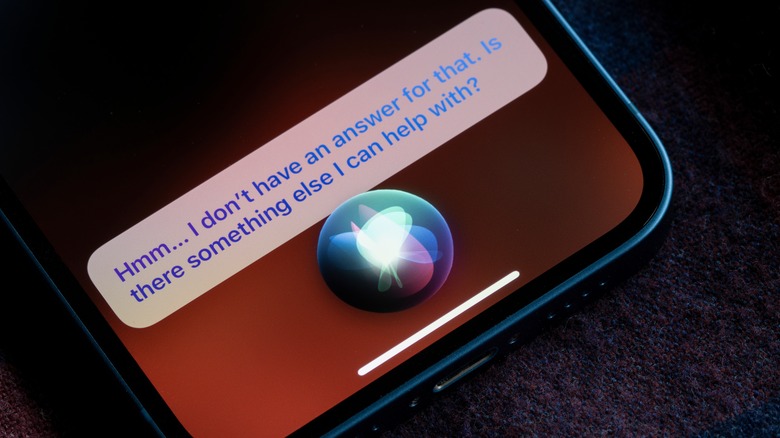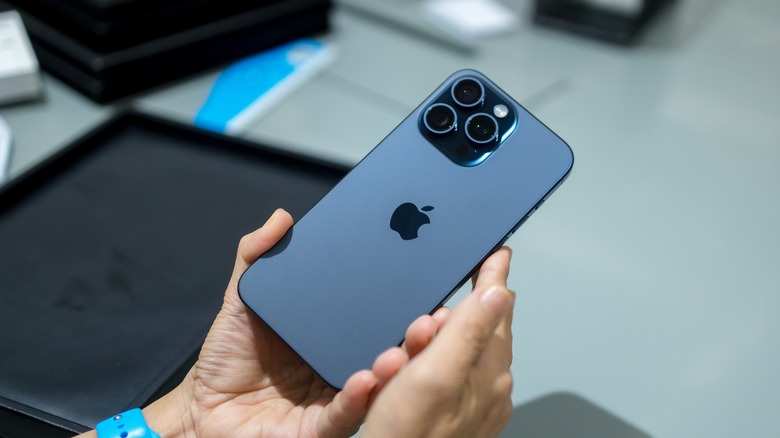
Tada Images/Shutterstock
Over the past few weeks, we’ve heard murmurs of Siri getting its biggest upgrade ever, thanks to AI, alongside some crucial upgrades destined for iOS. But it seems Apple will lock access to some of those next-gen capabilities behind expensive hardware limitations, and they might actually hurt smartphone users more than Mac loyalists.
According to Bloomberg’s Mark Gurman, users might have to splurge on the expensive «Pro» tier iPhones, and that too, the latest ones, in order to access the full-suite of AI updates . «Many of the on-device AI capabilities will require an iPhone 15 Pro or later to work,» Gurman wrote on X, the platform formerly known as Twitter.
Apple is betting that the new AI features for the iPhone will encourage users to upgrade their devices. Many of the on-device AI capabilities will require an iPhone 15 Pro or later to work. Macs and iPads, meanwhile, will need at least an M1 chip. https://t.co/iSDTs6Xahi
— Mark Gurman (@markgurman) May 31, 2024
For folks with an iPad in their hands, they would need a machine with at least an M1 silicon inside, and a similar limitation applies to Macs. Now, the price disparity is huge. The iPhone 15 Pro starts at $999 in the US, while the latest M2 iPad Air has a base price of $599.
If you’re swayed by the AI promises and eyeing a Mac, Best Buy recently started selling the excellent M1-powered MacBook Air for just $649. Now, we’re not sure how the processing limitation goes back to the generations-old M1 inside iPads, but it requires the 3 nanometer-based A17 Pro inside an iPhone for accessing AI features. But it seems the upgraded AI accelerator hardware has something to do with on-device processing capabilities. We’ll know once Apple releases technical discussions following the annual WWDC conference in June.
An AI rest for iOS 18

LittlePigPower/Shutterstock
As far as the AI upgrades destined for Apple hardware — especially iPhones and iPads — is concerned, Siri seems to be the biggest beneficiary. Apple has reportedly overhauled the underlying architecture powering the virtual assistance and has juiced it up with large language model capabilities, the fundamental tech powering the likes of ChatGPT and Google’s Gemini.
«The new system will allow Siri to take command of all the features within apps for the first time,» says a Bloomberg report. Apple will begin with deep functional Siri integration on its own apps, but has plans to allow third-party apps to draw the benefits, as well.
Thanks to this tighter Siri-app interplay, the digital assistant will be able to accomplish tasks such as open specific documents, send or wipe emails, send a web link via email, summarize articles, move around notes, and more. The assistant will also be able to decipher the interactions that users are having with their iPhone using touch-gestures.
Down the road, Siri will graduate from processing single tasks to performing multiple tasks in one go via voice commands. Aside from Siri, Apple also has upgrades planned for the system-wide universal search feature that it calls Spotlight, bringing it closer to the Mac version in terms of functional chops. Taking some inspiration from Samsung’s Galaxy AI approach and Google Gemini, iOS 18 will also introduce tricks like summarisation of voice notes, quick recap for notifications, AI-assisted photo editing, and the ability to create custom emojis based on the ongoing conversation.